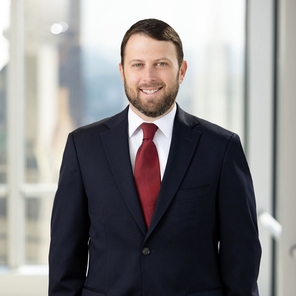
ERC Refund Litigation: The Role of Local Counsel
By Jeffrey M. Glassman on February 12, 2024
-
 Jeffrey M. Glassman
Jeffrey M. Glassman
View Bio
Given that the IRS Employee Retention Credit (“ERC” or “ERTC”) moratorium is still in effect, and ERC claims not subject to the moratorium are being processed slowly, there are possibly many ERC refund lawsuits that may be filed soon. The rules of civil procedure generally provide that cases against the U.S. government can be filed only in the judicial district where the plaintiff resides or where a corporation has its principal place of business. So needless to say, if there are in fact many ERC lawsuits filed, they will likely be filed in many different courts.
The number of rules to be followed are plentiful. Most tax litigation occurs in the Tax Court, which can make it easier for tax litigators because there is generally only one set of rules with which practitioners need to be familiar—the Tax Court’s Rules of Practice and Procedure. Whether a Tax Court case is heard in Boise, D.C., or Dallas, the rules are generally the same. But ERC refund lawsuits are likely not able to be heard in the Tax Court.
Instead, ERC refund lawsuits will likely need to be pursued in federal district court or the U.S. Court of Federal Claims. In other words, ERC refund lawsuits may be heard in any one of the 94 federal judicial districts or the U.S. Court of Federal Claims. There are, thus, at least 95 separate sets of rules with which to be familiar (not to mention the judge-specific rules that can complicate things further).
The local rules of each court generally require local counsel. For example, in the Northern District of Texas, Local Rule 83.10 provides the following:
If you are contemplating filing an ERC lawsuit and need local counsel, please give me a call. Or if you would like to discuss any other ERC-related issue, or any other civil or criminal tax matter, you can reach me at jglassman@meadowscollier.com or 214-749-2417.
The number of rules to be followed are plentiful. Most tax litigation occurs in the Tax Court, which can make it easier for tax litigators because there is generally only one set of rules with which practitioners need to be familiar—the Tax Court’s Rules of Practice and Procedure. Whether a Tax Court case is heard in Boise, D.C., or Dallas, the rules are generally the same. But ERC refund lawsuits are likely not able to be heard in the Tax Court.
Instead, ERC refund lawsuits will likely need to be pursued in federal district court or the U.S. Court of Federal Claims. In other words, ERC refund lawsuits may be heard in any one of the 94 federal judicial districts or the U.S. Court of Federal Claims. There are, thus, at least 95 separate sets of rules with which to be familiar (not to mention the judge-specific rules that can complicate things further).
The local rules of each court generally require local counsel. For example, in the Northern District of Texas, Local Rule 83.10 provides the following:
Local Counsel Required: Unless exempted by LR 83.11, local counsel is required in all cases where an attorney appearing in a case does not reside or maintain the attorney’s principal office in this district. “Local counsel” means a member of the bar of this court who resides or maintains the attorney’s principal office in this district and whose residence or principal office is located within 50 miles of the courthouse in the division in which the case is pending. Attorneys desiring to proceed without local counsel must obtain leave from the presiding judge. If the request for leave is denied, written designation of local counsel must be filed within 14 days of the denial.
Duties of Local Counsel. Local counsel must be authorized to present and argue a party’s position at any hearing called by the presiding judge. Local counsel must also be able to perform, on behalf of the party represented, any other duty required by the presiding judge or the local rules of this court.
Note that Local Rule 83.11 exempts from the requirement of local counsel only certain government lawyers. So, Local Rule 83.10 will almost certainly apply to private practitioners.
There are other benefits to having local counsel beyond compliance with the local rules. Local counsel will usually have familiarity with the local rules and the court. They will also have better access to the local bar if they want to ask someone who has appeared before a particular judge, or worked with opposing counsel, about their experience. Local counsel should be able to help with many issues in a case, including attending in-person meetings, e.g., depositions, and providing conference rooms and timely administrative support. It also helps when the law firm’s office is close to the courthouse (or in Meadows Collier’s case, just across the street).If you are contemplating filing an ERC lawsuit and need local counsel, please give me a call. Or if you would like to discuss any other ERC-related issue, or any other civil or criminal tax matter, you can reach me at jglassman@meadowscollier.com or 214-749-2417.
